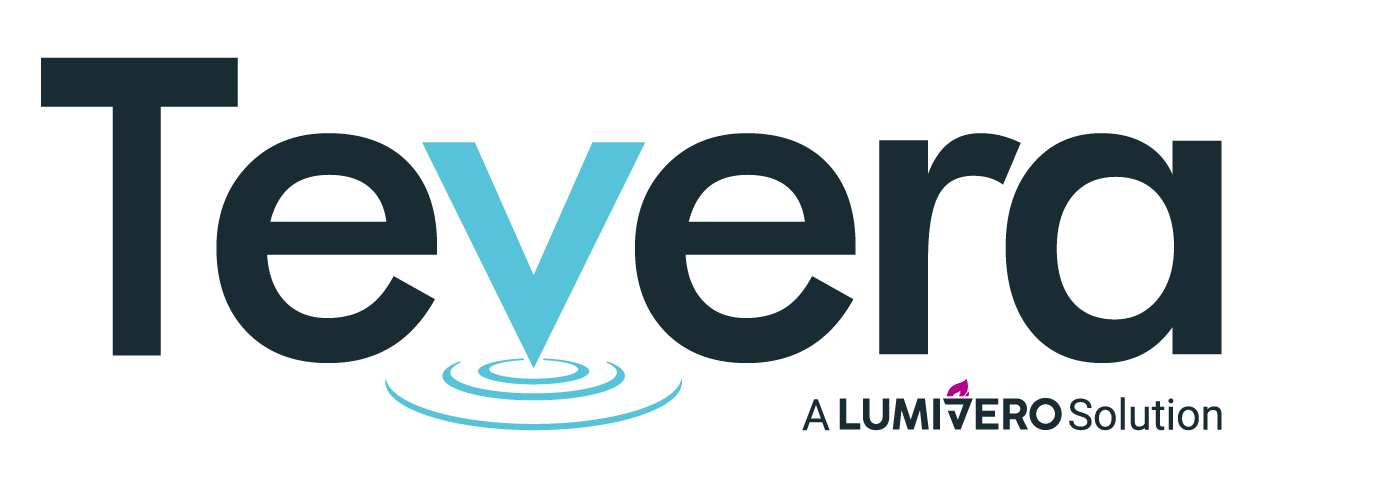Counseling as a Profession
The counseling profession has spread well beyond the traditional view of counselors and where they work, and there is no indication of this slowing. Dr. Shannon Hodges outlines in her book, 101 Careers in Counseling, the various non-traditional settings where you can find counselors today, including spiritual institutions, legal and correctional settings, creative arts, and other emerging fields for counselors like athletics, life coaching, and LGBTQ+ counseling.
As individuals continue to seek counseling, there is a 25% growth projection for counselors from the U.S. Bureau of Labor Statistics, particularly for mental health and addiction professionals.It is safe to say that counselors will continue to be found in more workplaces and institutions, and those environments will shape the type of care counselors provide.
When you already know what type of counseling you want to practice. . .
Many times personal experience or even the experience of someone close to you, such as a friend or family member, can inform what kind of counseling you want to pursue. For example, when asked if her own experiences impacted her choice of profession within counseling, this soon-to-be graduate couldn’t be more confident in her career path after struggling with addiction herself.
“My biggest passions are correctional counseling and addiction counseling. . . . I want to work at a recovery facility. My goal is to help others recover from addiction. I used to think I wanted to be rich or famous but I’ve learned that’s not what brings fulfillment. I want to help people out of trauma and create a life I love.” – Jane S., Future Counselor
When you don’t know what type of counseling you want to practice. . .
Maybe you have always known you wanted to help people, either children, adults, couples, or families, but you were not sure in what capacity. Oftentimes, through learning and experience you begin to see the possibilities and you may fall into your passion.
For Dominique Oster, the first phase of her career led her to human resources. Her experiences working with employees then called her to counseling, an unexpected career move, yet she has found her calling in marriage and family counseling.
“I fell into Human Resources because I worked for a college doing career counseling and student services. . . . I switched from that to HR and it was kind of a smooth transition from one thing to the other. I’ve always liked helping people. I also really like to help people live more congruent lives with what they want to do. . . . It’s okay to do your dream job and then realize that it’s not for you and then go do something else too. I’ve always liked helping people. I also really like to help people live more congruent lives with what they want to do.” – Dominique O.
It’s also important to consider what different types of counseling offer in terms of lifestyle. Counseling services can occur in a range of settings and schedules, so thinking about how you want your career to fit in with your life, family, and routines is an important consideration.
As you learn about the various specialties and career paths in counseling, keep an open mind as to what area might feel right and be open to experiences you may have not considered before.
The Counseling Specialties
When it is time to begin exploring your choices, it’s important to understand what type of training, certifications, and licenses are needed within each type of counseling. Familiarizing yourself with industry accreditation leader CACREP can help guide your decisions in finding the right program for you.
It is also important to understand that, in many cases, clients may have needs in multiple categories. Perhaps an addiction is contributing to domestic violence or conflicts within a family, so a counselor may be involved with more than one speciality at a time.
Here are the major counseling categories to get a feel for what path may be right for you.
Career and Guidance Counselors
Working in a range of settings from schools to employee assistance programs, career counselors assist individuals exploring their future career, career transitions, and possible education paths, among other work-related situations.
The Bureau of Labor Statistics estimates that there will be an 8% growth in the need for career counselors from 2019–2029, which is faster than the average, meaning greater job security for aspiring career counselors.
Marriage and Family Counselors
Marriage and family counselors focus on the family unit and the relationships within it. This could include couples therapy, children’s behavior, domestic violence, or communication issues.
The predicted job growth for marriage and family counselors, according to the Bureau of Labor Statistics, is 22%, well above average as demand for treatment increases.
Addiction and Substance Recovery Counselors
Addiction counselors work with individuals, families, and others affected by alcoholism, drug addiction, sexual activities, gambling, and other addictive disorders. Counselors use a range of care for treatment, prevention, relapse prevention, recovery, and rehabilitation. Because each client will have a different experience and set of needs, counselors for addiction may have different structures and models of care.
Rehabilitation Counselors
Counselors in rehabilitation work closely with individuals with disabilities, whether they have cognitive, physical, psychiatric, sensory, or other disabilities. Counselors help to find solutions and make plans for how to reach individuals’ goals, whether it relates to their education, career, relationships, independence, or a combination.
Mental Health Counselors
Counselors in mental health work with individuals suffering from illnesses such as depression and anxiety, bipolar disorder, ADHD, PTSD, and eating disorders, among other problems. They will guide patients through diagnosis, treatment, prevention, and promote overall health and well-being.
Within these broader categories of counseling, there are even more specific types of counseling you may be interested in exploring. These include art therapy, music therapy, grief counseling, debt counseling, and child development counseling. If you are interested in any of these or other types of counseling, spend time finding accredited programs through CACREP or talk with your advisor, supervisor, or mentors in the field to understand the different options available and what might be a good fit for you.
Finding the Right Fit for You
“There is such a need for mental health support that the options really are endless once you have the required qualifications. If you want to work with children, or as a consultant, author, speaker, private practice therapist, practice owner, social worker, or whatever – there is a role for you.” – Dominique O.
As you continue your educational journey and learn about individual counseling programs, pay attention to what you want to continue learning about, as your work in counseling will constantly offer new lessons and ideas to consider.
SOLUTIONS
RELATED POSTS
PRODUCT OVERVIEW
See how Tevera can elevate your program.
Counseling as a Profession
The counseling profession has spread well beyond the traditional view of counselors and where they work, and there is no indication of this slowing. Dr. Shannon Hodges outlines in her book, 101 Careers in Counseling, the various non-traditional settings where you can find counselors today, including spiritual institutions, legal and correctional settings, creative arts, and other emerging fields for counselors like athletics, life coaching, and LGBTQ+ counseling.
As individuals continue to seek counseling, there is a 25% growth projection for counselors from the U.S. Bureau of Labor Statistics, particularly for mental health and addiction professionals.It is safe to say that counselors will continue to be found in more workplaces and institutions, and those environments will shape the type of care counselors provide.
When you already know what type of counseling you want to practice. . .
Many times personal experience or even the experience of someone close to you, such as a friend or family member, can inform what kind of counseling you want to pursue. For example, when asked if her own experiences impacted her choice of profession within counseling, this soon-to-be graduate couldn’t be more confident in her career path after struggling with addiction herself.
“My biggest passions are correctional counseling and addiction counseling. . . . I want to work at a recovery facility. My goal is to help others recover from addiction. I used to think I wanted to be rich or famous but I’ve learned that’s not what brings fulfillment. I want to help people out of trauma and create a life I love.” – Jane S., Future Counselor
When you don’t know what type of counseling you want to practice. . .
Maybe you have always known you wanted to help people, either children, adults, couples, or families, but you were not sure in what capacity. Oftentimes, through learning and experience you begin to see the possibilities and you may fall into your passion.
For Dominique Oster, the first phase of her career led her to human resources. Her experiences working with employees then called her to counseling, an unexpected career move, yet she has found her calling in marriage and family counseling.
“I fell into Human Resources because I worked for a college doing career counseling and student services. . . . I switched from that to HR and it was kind of a smooth transition from one thing to the other. I’ve always liked helping people. I also really like to help people live more congruent lives with what they want to do. . . . It’s okay to do your dream job and then realize that it’s not for you and then go do something else too. I’ve always liked helping people. I also really like to help people live more congruent lives with what they want to do.” – Dominique O.
It’s also important to consider what different types of counseling offer in terms of lifestyle. Counseling services can occur in a range of settings and schedules, so thinking about how you want your career to fit in with your life, family, and routines is an important consideration.
As you learn about the various specialties and career paths in counseling, keep an open mind as to what area might feel right and be open to experiences you may have not considered before.
The Counseling Specialties
When it is time to begin exploring your choices, it’s important to understand what type of training, certifications, and licenses are needed within each type of counseling. Familiarizing yourself with industry accreditation leader CACREP can help guide your decisions in finding the right program for you.
It is also important to understand that, in many cases, clients may have needs in multiple categories. Perhaps an addiction is contributing to domestic violence or conflicts within a family, so a counselor may be involved with more than one speciality at a time.
Here are the major counseling categories to get a feel for what path may be right for you.
Career and Guidance Counselors
Working in a range of settings from schools to employee assistance programs, career counselors assist individuals exploring their future career, career transitions, and possible education paths, among other work-related situations.
The Bureau of Labor Statistics estimates that there will be an 8% growth in the need for career counselors from 2019–2029, which is faster than the average, meaning greater job security for aspiring career counselors.
Marriage and Family Counselors
Marriage and family counselors focus on the family unit and the relationships within it. This could include couples therapy, children’s behavior, domestic violence, or communication issues.
The predicted job growth for marriage and family counselors, according to the Bureau of Labor Statistics, is 22%, well above average as demand for treatment increases.
Addiction and Substance Recovery Counselors
Addiction counselors work with individuals, families, and others affected by alcoholism, drug addiction, sexual activities, gambling, and other addictive disorders. Counselors use a range of care for treatment, prevention, relapse prevention, recovery, and rehabilitation. Because each client will have a different experience and set of needs, counselors for addiction may have different structures and models of care.
Rehabilitation Counselors
Counselors in rehabilitation work closely with individuals with disabilities, whether they have cognitive, physical, psychiatric, sensory, or other disabilities. Counselors help to find solutions and make plans for how to reach individuals’ goals, whether it relates to their education, career, relationships, independence, or a combination.
Mental Health Counselors
Counselors in mental health work with individuals suffering from illnesses such as depression and anxiety, bipolar disorder, ADHD, PTSD, and eating disorders, among other problems. They will guide patients through diagnosis, treatment, prevention, and promote overall health and well-being.
Within these broader categories of counseling, there are even more specific types of counseling you may be interested in exploring. These include art therapy, music therapy, grief counseling, debt counseling, and child development counseling. If you are interested in any of these or other types of counseling, spend time finding accredited programs through CACREP or talk with your advisor, supervisor, or mentors in the field to understand the different options available and what might be a good fit for you.
Finding the Right Fit for You
“There is such a need for mental health support that the options really are endless once you have the required qualifications. If you want to work with children, or as a consultant, author, speaker, private practice therapist, practice owner, social worker, or whatever – there is a role for you.” – Dominique O.
As you continue your educational journey and learn about individual counseling programs, pay attention to what you want to continue learning about, as your work in counseling will constantly offer new lessons and ideas to consider.
Counseling as a Profession
The counseling profession has spread well beyond the traditional view of counselors and where they work, and there is no indication of this slowing. Dr. Shannon Hodges outlines in her book, 101 Careers in Counseling, the various non-traditional settings where you can find counselors today, including spiritual institutions, legal and correctional settings, creative arts, and other emerging fields for counselors like athletics, life coaching, and LGBTQ+ counseling.
As individuals continue to seek counseling, there is a 25% growth projection for counselors from the U.S. Bureau of Labor Statistics, particularly for mental health and addiction professionals.It is safe to say that counselors will continue to be found in more workplaces and institutions, and those environments will shape the type of care counselors provide.
When you already know what type of counseling you want to practice. . .
Many times personal experience or even the experience of someone close to you, such as a friend or family member, can inform what kind of counseling you want to pursue. For example, when asked if her own experiences impacted her choice of profession within counseling, this soon-to-be graduate couldn’t be more confident in her career path after struggling with addiction herself.
“My biggest passions are correctional counseling and addiction counseling. . . . I want to work at a recovery facility. My goal is to help others recover from addiction. I used to think I wanted to be rich or famous but I’ve learned that’s not what brings fulfillment. I want to help people out of trauma and create a life I love.” – Jane S., Future Counselor
When you don’t know what type of counseling you want to practice. . .
Maybe you have always known you wanted to help people, either children, adults, couples, or families, but you were not sure in what capacity. Oftentimes, through learning and experience you begin to see the possibilities and you may fall into your passion.
For Dominique Oster, the first phase of her career led her to human resources. Her experiences working with employees then called her to counseling, an unexpected career move, yet she has found her calling in marriage and family counseling.
“I fell into Human Resources because I worked for a college doing career counseling and student services. . . . I switched from that to HR and it was kind of a smooth transition from one thing to the other. I’ve always liked helping people. I also really like to help people live more congruent lives with what they want to do. . . . It’s okay to do your dream job and then realize that it’s not for you and then go do something else too. I’ve always liked helping people. I also really like to help people live more congruent lives with what they want to do.” – Dominique O.
It’s also important to consider what different types of counseling offer in terms of lifestyle. Counseling services can occur in a range of settings and schedules, so thinking about how you want your career to fit in with your life, family, and routines is an important consideration.
As you learn about the various specialties and career paths in counseling, keep an open mind as to what area might feel right and be open to experiences you may have not considered before.
The Counseling Specialties
When it is time to begin exploring your choices, it’s important to understand what type of training, certifications, and licenses are needed within each type of counseling. Familiarizing yourself with industry accreditation leader CACREP can help guide your decisions in finding the right program for you.
It is also important to understand that, in many cases, clients may have needs in multiple categories. Perhaps an addiction is contributing to domestic violence or conflicts within a family, so a counselor may be involved with more than one speciality at a time.
Here are the major counseling categories to get a feel for what path may be right for you.
Career and Guidance Counselors
Working in a range of settings from schools to employee assistance programs, career counselors assist individuals exploring their future career, career transitions, and possible education paths, among other work-related situations.
The Bureau of Labor Statistics estimates that there will be an 8% growth in the need for career counselors from 2019–2029, which is faster than the average, meaning greater job security for aspiring career counselors.
Marriage and Family Counselors
Marriage and family counselors focus on the family unit and the relationships within it. This could include couples therapy, children’s behavior, domestic violence, or communication issues.
The predicted job growth for marriage and family counselors, according to the Bureau of Labor Statistics, is 22%, well above average as demand for treatment increases.
Addiction and Substance Recovery Counselors
Addiction counselors work with individuals, families, and others affected by alcoholism, drug addiction, sexual activities, gambling, and other addictive disorders. Counselors use a range of care for treatment, prevention, relapse prevention, recovery, and rehabilitation. Because each client will have a different experience and set of needs, counselors for addiction may have different structures and models of care.
Rehabilitation Counselors
Counselors in rehabilitation work closely with individuals with disabilities, whether they have cognitive, physical, psychiatric, sensory, or other disabilities. Counselors help to find solutions and make plans for how to reach individuals’ goals, whether it relates to their education, career, relationships, independence, or a combination.
Mental Health Counselors
Counselors in mental health work with individuals suffering from illnesses such as depression and anxiety, bipolar disorder, ADHD, PTSD, and eating disorders, among other problems. They will guide patients through diagnosis, treatment, prevention, and promote overall health and well-being.
Within these broader categories of counseling, there are even more specific types of counseling you may be interested in exploring. These include art therapy, music therapy, grief counseling, debt counseling, and child development counseling. If you are interested in any of these or other types of counseling, spend time finding accredited programs through CACREP or talk with your advisor, supervisor, or mentors in the field to understand the different options available and what might be a good fit for you.
Finding the Right Fit for You
“There is such a need for mental health support that the options really are endless once you have the required qualifications. If you want to work with children, or as a consultant, author, speaker, private practice therapist, practice owner, social worker, or whatever – there is a role for you.” – Dominique O.
As you continue your educational journey and learn about individual counseling programs, pay attention to what you want to continue learning about, as your work in counseling will constantly offer new lessons and ideas to consider.


















